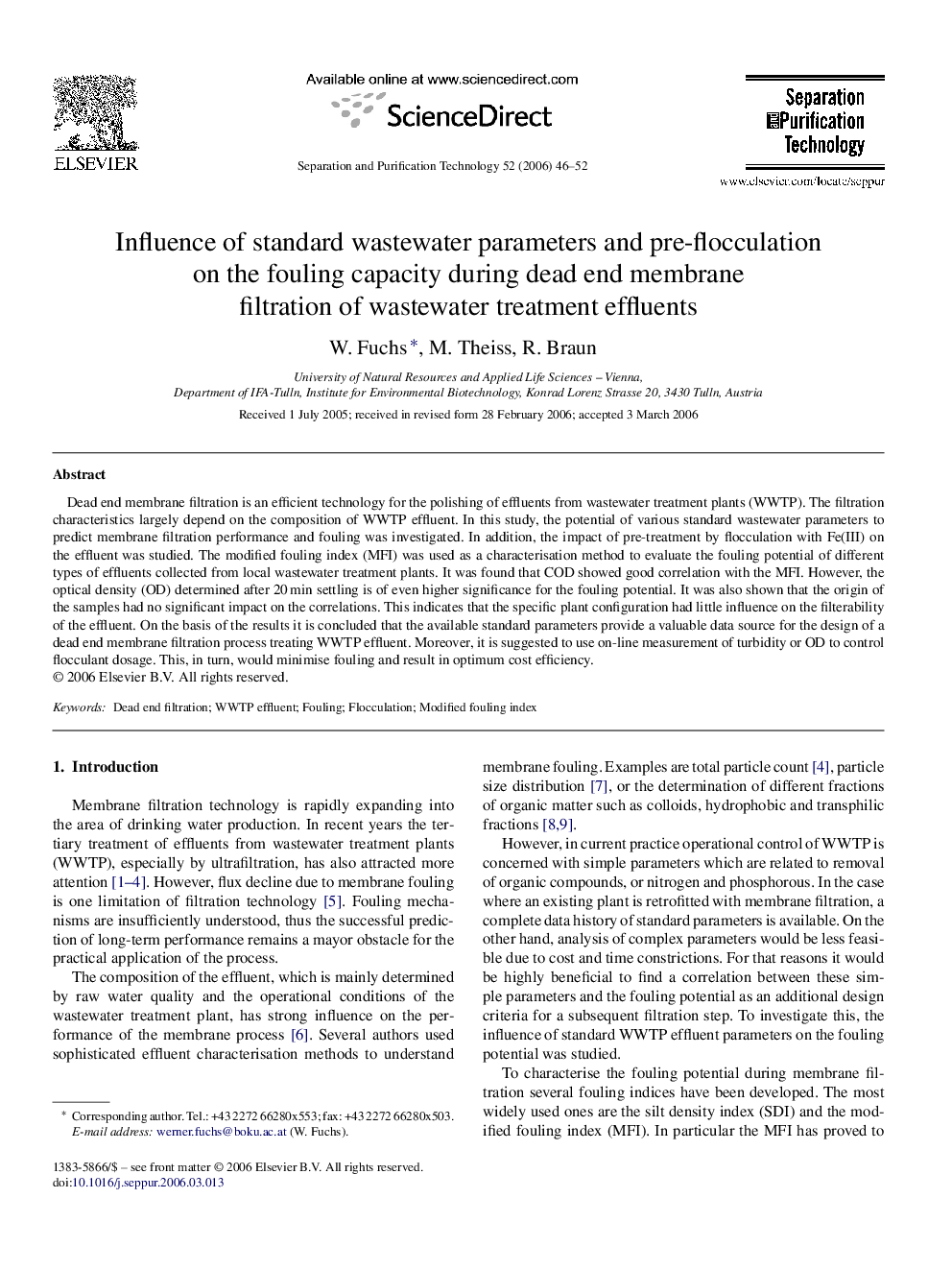| Article ID | Journal | Published Year | Pages | File Type |
|---|---|---|---|---|
| 644371 | Separation and Purification Technology | 2006 | 7 Pages |
Dead end membrane filtration is an efficient technology for the polishing of effluents from wastewater treatment plants (WWTP). The filtration characteristics largely depend on the composition of WWTP effluent. In this study, the potential of various standard wastewater parameters to predict membrane filtration performance and fouling was investigated. In addition, the impact of pre-treatment by flocculation with Fe(III) on the effluent was studied. The modified fouling index (MFI) was used as a characterisation method to evaluate the fouling potential of different types of effluents collected from local wastewater treatment plants. It was found that COD showed good correlation with the MFI. However, the optical density (OD) determined after 20 min settling is of even higher significance for the fouling potential. It was also shown that the origin of the samples had no significant impact on the correlations. This indicates that the specific plant configuration had little influence on the filterability of the effluent. On the basis of the results it is concluded that the available standard parameters provide a valuable data source for the design of a dead end membrane filtration process treating WWTP effluent. Moreover, it is suggested to use on-line measurement of turbidity or OD to control flocculant dosage. This, in turn, would minimise fouling and result in optimum cost efficiency.
